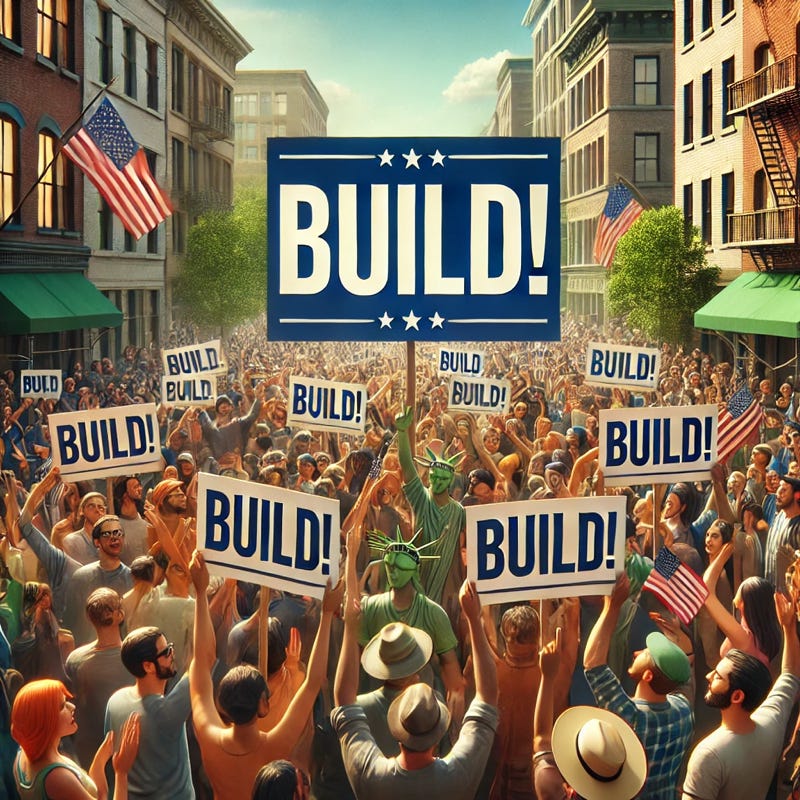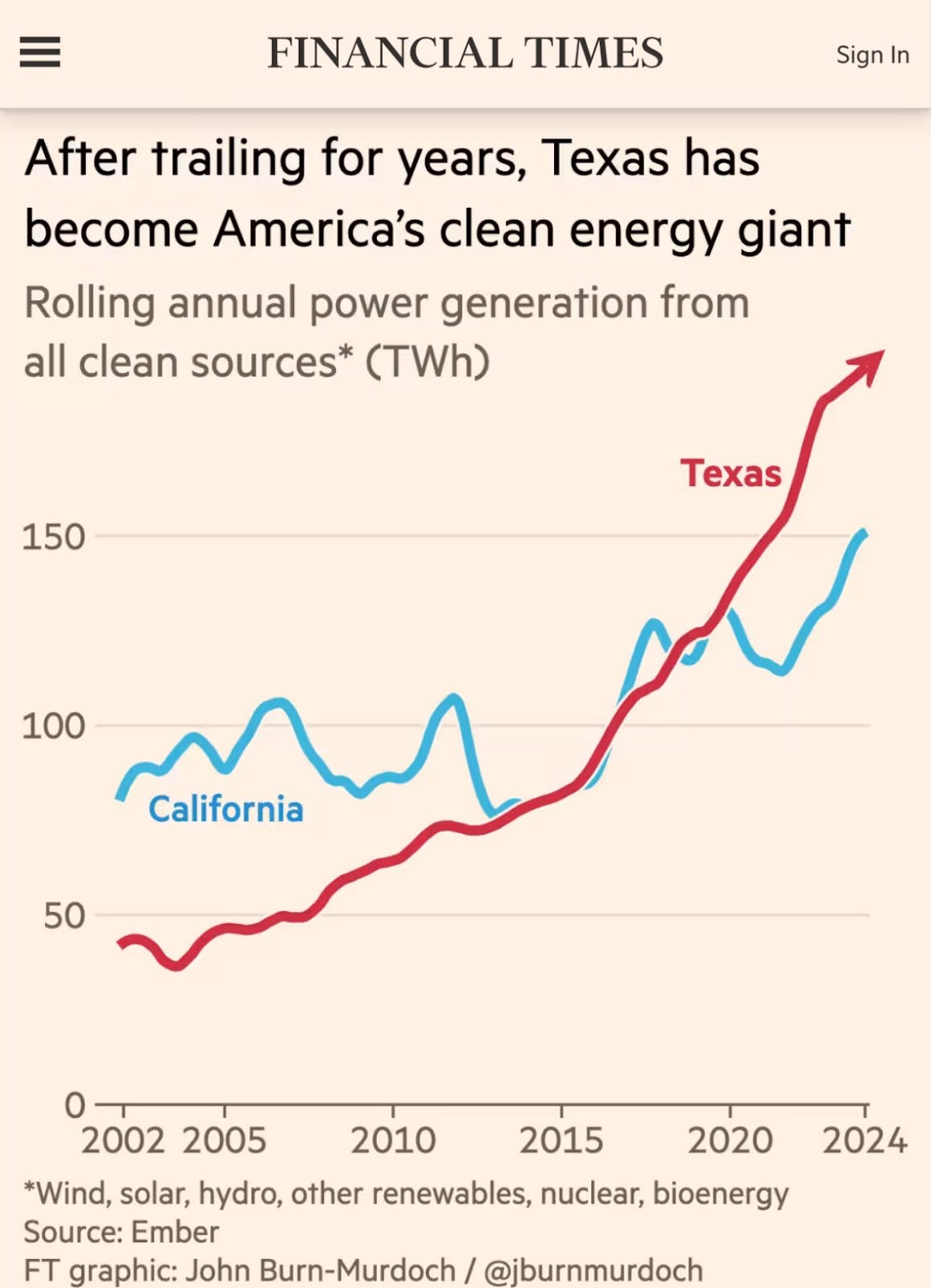The Seven Slogans of Democratic Politics
How Democrats recover the trust of everyday Americans.
Democrats are reeling from Donald Trump’s norm-trampling blitzkrieg. Faced with his cruelty and chaos, some party leaders initially tossed up their hands. Others continue to swing blindly at every pitch Trump throws our way.
Today’s post concerns focus and priorities: What should Democrats fight for to recover the noncollege voters we lost, and how do we communicate these priorities? The next post will discuss themes and tactics. What themes best help us to reconnect with these voters, and how do we have some fun mobilizing them?
At the moment, Democrats and Republicans are playing different games. Trump views the purpose of politics as dominance, ideology, and narcissistic glory. Too many Democrats see politics as a colorless, technocratic process. This does not speak to the concerns of noncollege Americans who voted for a controlled border, stable prices, and an end to self-parodying wokeness.
Seven issues have determined every modern presidential election. Their relative importance changes, and we should shift our emphasis accordingly. The problems are economic security, immigration, healthcare, national and local security, energy, civil rights, and education. We need common sense, majoritarian priorities in these areas, and slogans that make our views clear and memorable.
Priorities and Slogans
1. “Build!”
Subsidizing demand is not enough. Ezra Klein, Derek Thompson, Noah Smith, and others have championed an “abundance agenda. They argue that abundance creates affordability and inclusive economic growth. Build! embraces abundance and challenges conventional Democratic thinking in three ways.
It values growth as much as distribution. Democrats instinctively focus more on distribution than growth. We rarely discuss how to increase productivity, which makes growth possible. This is understandable: growth is hard to see and vaguely capitalist, while inequality is the painful and visible result of capitalist priorities. But building for economic growth is enormously consequential. A country that grows five percent yearly becomes twice as rich in fourteen years. If it grows two percent, doubling takes 35 years. Dems are right to care about how income and wealth get distributed, but first, we want to have as much to go around as possible. “Build!” promotes a positive-sum, growth mindset, not a grim contest over finite resources.
It attacks regulations that restrict growth and affordability. Elected political leaders are far more skilled at creating regulations than getting rid of them. We must acknowledge that when we do not sunset regulations as often as we make them, we create a sclerotic, process-paralyzed government. An agency I helped lead, the U.S. Department of Labor, enforces 180 federal laws that together run more than 10,000 pages. No regulator knows them all, nor do any of the 165 million workers in our 11 million workplaces they are designed to help. And Labor is only one of 15 cabinet-level agencies. We need to become much more suspicious of federal rules and celebrate “Deregulation Democrats.”
It admits that subsidizing demand while constraining supply raises prices. Our progressive instinct is to help people afford more healthcare, housing, and education. So, we offer them money, tax breaks, grants, vouchers, and government-backed loans. Without a commitment to growing supply, however, these subsidies fuel price increases. We have effectively paid the healthcare, housing, and education sectors to raise prices. They complied – and it is a big reason that inflation in these sectors has grown much faster than in other parts of the economy. (Slow productivity growth is the other big reason).
2. “No gate crashing.”
Secure our borders. Gallup found that more than 75% of Americans thought our porous southern border was either a major problem or a crisis. Biden waited until June 2024 to end the mass march north by closing the asylum loophole. His delay was political malpractice and helped re-elect Donald Trump.
Some Democrats want less immigration. They worry about job competition, cultural integration, and national security. Others, like me, want more legal immigration because we think it strengthens the country and we care about refugees. Both groups need to oppose anyone illegally crashing our border. Americans demand this and have made immigration a political third rail. When voters express a 3-1 preference on a big issue, politicians get behind the majority except in very unusual circumstances. It’s what we elect them to do.
3. “End medical bankruptcy”
Offer universal catastrophic coverage and free preventive care. Twenty-six million Americans lack health insurance, and forty percent of all bankruptcies involve unexpected medical bills. Although Americans strongly favor universal health care, “Medicare-for-All” worsens our cost problems and ignores the many people who prefer their private insurance plans.
Universal catastrophic coverage (UCC) with free preventive care is an affordable, and achievable near-term solution. UCC plans have high deductibles, which are capped based on income.1 Once the deductible is reached, UCC plans cover all medical costs.2 Most cover preventive services and treatments for chronic conditions for free or at minimal cost. Individuals pay for routine care, drugs, and treatments up to the deductible, although individuals and employers can purchase private insurance to limit deductibles and co-pays.
A UCC system with free preventive care can protect everyone against catastrophic costs, reduce premiums by about 40% compared to ACA plans, cost the government less than the ACA despite insuring millions more people, and reduce total health spending by hundreds of billions annually. Most families would spend less on healthcare than they spend today on premiums, copays, and deductibles. We would end the menace of medical bankruptcy threatening families that lack adequate insurance.
4. “Keep us safe”
Spend more on defense, cops, and social workers. Security is the first responsibility of any government. We need a smarter, more capable military and stronger cyber defenses to counter China. Dems must prioritize public safety: hire more police – and balance social worker cops with tough-guy enforcers. We should expand jail-from-home, which cuts in half the cost of incarcerating low-risk offenders.3 And we should applaud blue states that are finally stepping up the involuntary commitment of mentally ill or addicted homeless people. Law and order Democrats need to make safety and national security a priority.
5. “Cheap energy”
From any source. Democrats should favor cheap energy and end EV subsidies for upper-middle-class households. For political reasons, we should prefer cheap energy to carbon taxes, even though carbon taxes make more sense economically. If it yields cheap oil, drill.4 If it yields cheap gas, frack. If solar or wind are cheaper, build them. If restarting Three Mile Island produces cheap power, do it.
This is a green agenda because the energy contest is over, and renewables won. If we build enough grid capacity, solar, wind, and maybe geothermal energy will beat out fossil fuels because they cost less. The people building green energy in Texas are not environmentalists but capitalists. Look at what they have done. Cheap energy is green and politically popular, so our slogan is “cheap energy!”.
6. “Protect rights”
Otherwise, stay out of our face. Somehow, we let social justice mutate from civil and labor rights to DEI, displaced Palestinians, and trans people. Every Democrat I know favors diversity. We all want equity. Nobody is against inclusion. However, DEI initiatives that deformed into mandatory training sessions, language scolding, land acknowledgments, personal pronouns, and quota-based hiring accomplished none of this. When Democrats began to sound like junior HR staffers, we lost a lot of noncollege voters. Very few people will miss this.
Democrats should aggressively defend civil and labor rights. However, we should not expand these rights into the realm of private medical or marital decisions. Questions about abortion or trans care are private decisions between people and their physicians. As with questions about whom you marry, the government should stay out of it. I am happy to vigorously defend gay marriage and a woman’s right to choose, but my preference would be to keep government out of private medical and marital decisions altogether. Call me a Deregulation Democrat.
7. “Accessible education and training to raise pay”
Use smart, affordable education and training to promote economic mobility. Most Americans view education and training as the key to economic mobility — and they are mostly correct.5
Americans also believe that Democrats are pro-education. Blue states damaged their reputation, however, when they yielded to teacher pressure to keep schools closed for too long during the pandemic. The Biden administration damaged it further by making broad-based student loan forgiveness the foundation of its education agenda. The program was expensive, regressive, and unpopular, even among those whose debt Biden forgave.
Instead of subsidizing demand with student loans, we should pay employers to bargain skill standards with unions and pay community colleges when they successfully train people to those standards. Instead of loaning students money for colleges that gobble it up with tuition increases, we should fund colleges directly based on the student outcomes they deliver. We should critically review regulations, accreditation standards, and mandatory student services that increase administrative overhead without improving educational outcomes. We know that well-designed education and training can help raise productivity and incomes – make it a priority.
These are our seven slogans: “Build!” “No gate crashing!” “End medical bankruptcy!” “Keep us safe!” “Cheap energy!” “Protect rights!” and “Use education to raise incomes!” In the next post, I will outline the themes that connect these slogans, tactics for building popular support, and candidates who can help Democrats win elections.
Musical Coda
There are many versions of UCC. The simple ones have just two parameters: an income threshold and a deductible based on income for those above the threshold. If the income level is $30,000 for a family of four, and the deductible is 10%, then a family with $60,000 of income would pay a maximum of $3,000 per year for health care (10% of $60k-$30k). A family with $100,00 of income would have a deductible of $7,000. A family with $1 million of income would have a deductible of $97,000, etc. Other versions include co-payments or premiums, but all have caps based on income and specify free preventative services.
Isn’t this subsidizing demand? Yes, but in this case, doing so reduces overall costs because these services pay for themselves. Covid or flu shots cost so much less than treating people when they get sick that we could profitably pay people to get these shots.
Home confinement costs half of what prison does and seems to work. Under the CARES Act, the U.S. Bureau of Prisons placed 13,204 individuals into home confinement. As of May 1, 2023, only 22 of these individuals had been returned to prison for committing a new crime, representing a new crime rate of 0.17%.
Paul Krugman points out that cheaper oil prices would drive out producers and increase prices because U.S. shale oil drillers are now the global marginal producers.
Education and training still correlate strongly with earnings, upward mobility, and income stability. However, 40% of recent college grads appear to be underemployed, thanks to uneven degree quality, the failure of schools to provide the specific skills employers seek, and degree inflation. Add in substantial student debt; unsurprisingly, public support for education has fallen substantially.



I realize the word 'Democratic" in the article refers to the political party, but it could be written to reflect both parties by changing about ten words. While I am as conservative as Marty is liberal (doubtful), I agree with 90% of this article. That's a lot of common ground the two parties could work with.
Good start, Marty. Now we need to find a coalition of sensible political leaders that will embrace the ideas. I wish Bill Bradley could reappear. . . . but the lesson of 2000 was that good ideas alone do not prevail.